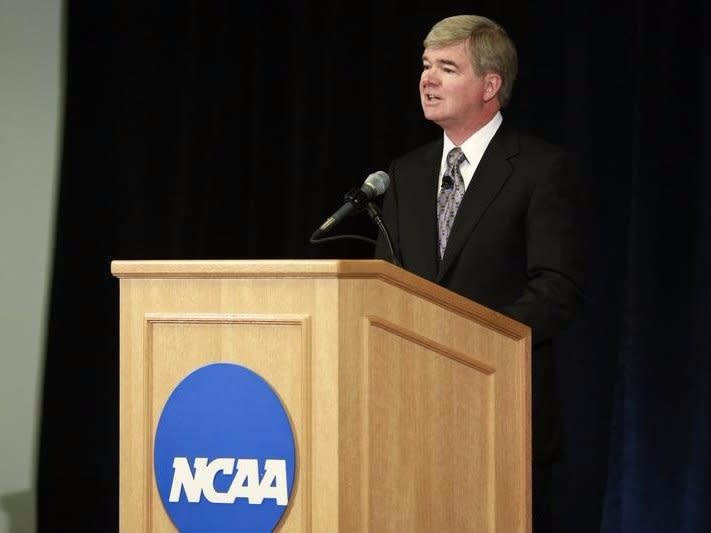The NCAA will require future hosts of championships to prove their states don't have discriminatory laws

Thomson Reuters
The National Collegiate Athletic Association announced Friday that it is asking any future hosts of NCAA championships to complete a survey about discrimination. The questionnaire asks host sites if their cities, counties and states have "passed antidiscrimination laws that are applicable to all persons" and if they have laws that "regulate choice of bathrooms or locker rooms."
In April, the NCAA Board of Governors adopted a new rule requiring host sites to "demonstrate how they will provide an environment that is safe, healthy and free of discrimination and also safeguards the dignity of everyone involved in the event." The board adopted the change after the state of North Carolina enacted a law banning people from using public bathrooms that did not match their biological gender. The law is widely seen as discriminating against transgender people.
Last year, the National Collegiate Athletic Association also condemned a controversial Indiana law that gave businesses the right to refuse service to lesbian, gay, bisexual and transgender people. The association, which is headquartered in Indianapolis, then joined a coalition of Indiana businesses aiming to add LGBT civil rights protections to state law.
At the same time — as a growing number of religious NCAA institutions request and receive waivers allowing them to discriminate against LGBT athletes — gay rights groups have criticized the NCAA for not taking a similarly hard line with its own members.
NOW WATCH: EX-UNDERCOVER DEA AGENT: What I did when drug dealers asked me to commit violence
See Also:

 Yahoo Finance
Yahoo Finance 
